Her daughter’s meltdowns inspired this Singapore mum to design a journal for kids with big emotions
When Andrea Goh Fenton’s three-year-old was having trouble managing her “big feelings”, she created the Mindful Me journal – filled with colouring pages paired with positive affirmations for kids, and guided prompts for parents – to help her daughter and other children cope better.
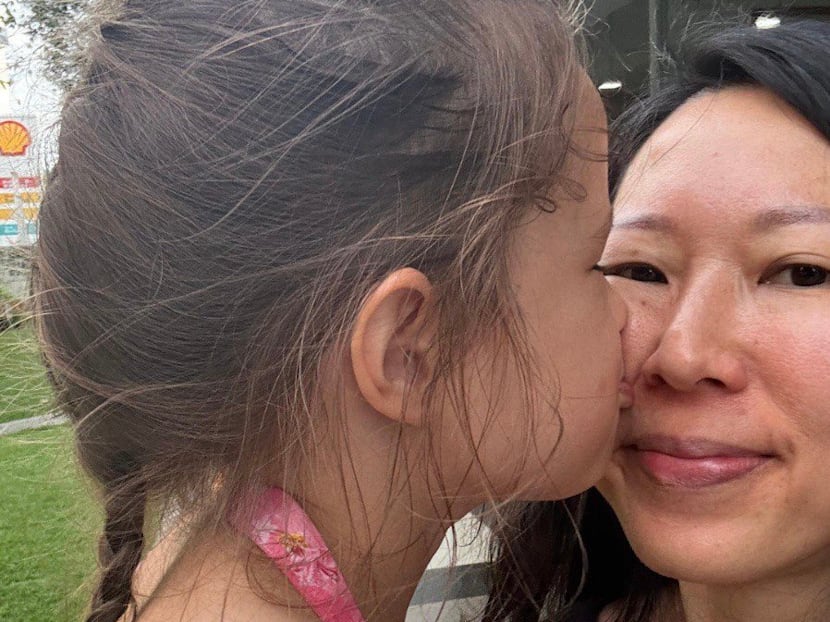
When Andrea Goh Fenton’s daughter had frequent meltdowns, she created a guided journal with prompts and colouring pages to help her, and other sensitive kids, express their feelings. (Photo: Andrea Goh Fenton)

This audio is generated by an AI tool.
Andrea Goh Fenton always suspected her daughter Livie was a little different when it came to sensitivity and big emotions, even as a baby.
“Besides feeling overwhelmed in noisy, loud environments, she is also rather self-conscious of what people think of her,” said the 46-year-old.
Her daughter, now four, would get easily upset or angry if she thought someone was laughing at her. “My daughter has an excellent sense of humour but when my husband and I laugh at her quirky comments, she often misunderstands it as us teasing her.”
It would upset her so much that she would have a meltdown, where she would pull her fingers and even scratch herself.
Fenton tried putting her in the naughty corner or simply leaving her alone – nothing worked. “The meltdowns and crying continued. And in the instances where it did work, the problem, sadly, would repeat itself shortly after,” the merchandising lead at a retail company said.
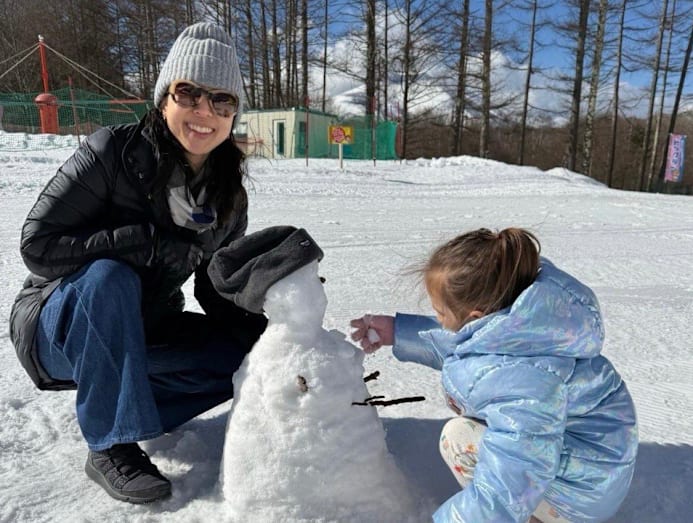
At the same time, she also discovered that Livie was being bullied at her preschool. To help her cope with it, Fenton took her to two psychologists. They told her that her daughter was an advanced thinker but her emotions lagged behind her thoughts, which led to her struggles in communicating them.
JOURNALLING AS THERAPY
Having noticed that colouring helped calm her daughter during her meltdowns, Fenton wanted to create a tool that would enable her to express her feelings more easily.
She was then on a career break and had signed up for an online Science of Happiness course offered by the University of California, Berkeley. It ended up being useful not only for Fenton but laid the foundation for her passion project.
She told CNA Women that the course focused on raising happy kids, which includes helping them form healthy habits like journalling, manifestation, positive affirmations, learning gratitude, playing outdoors and even doing chores.
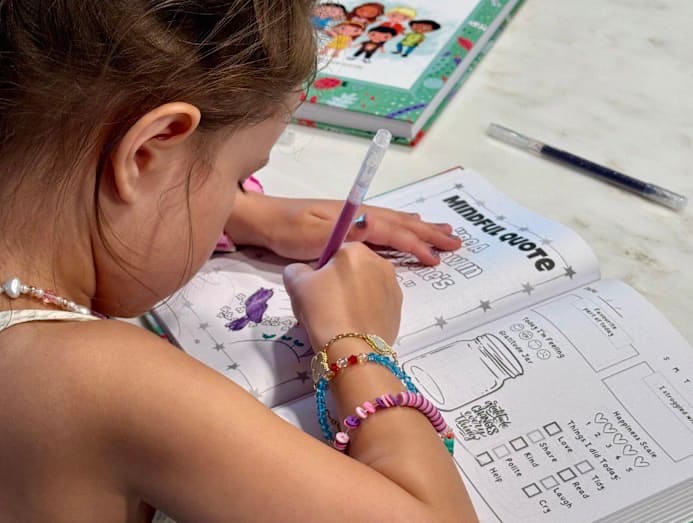
“Writing, not typing, may have a positive effect on mental health as it’s a safe, confidential and free way to disclose emotions that were previously bottled up,” she said.
“At the same time, I learnt that when we get children to get into the habit of journalling or, for the younger ones, to talk and share about their day and emotions, it can help them tune into their self-awareness and become more aware of their traits, behaviours, feelings, values and motivations.”
In fact, Fenton herself is a firm believer of journalling, finding it therapeutic and helpful in managing anxiety and reducing stress.
A MOTHER’S LABOUR OF LOVE
The result is Mindful Me: A Journal For Kids (S$37 for the journal; S$43 for a journal and sticker bundle), a guided journal to help children aged four to 10 years develop mindfulness, emotional awareness and resilience through different activities, from an Asian parenting perspective.
Fenton launched it in August 2024 and it’s available for sale online.
The 280-page journal includes calming strategies, mindful activities such as colouring pages with positive affirmations, activity sheets and doodle pages which Fenton designed, to help kids express themselves.
“I wanted to support kids with a safe space to express their big feelings and share their emotions with their parents,” she said.
Fenton worked on Mindful Me for eight months, going through six rounds of samples and hours of editing and re-editing. She returned to the workforce in its final stages and spent her evenings and weekends completing it.
At times, she wanted to give up, especially after returning to full-time work, but she persevered thanks to her husband, who believed in what she had to offer.
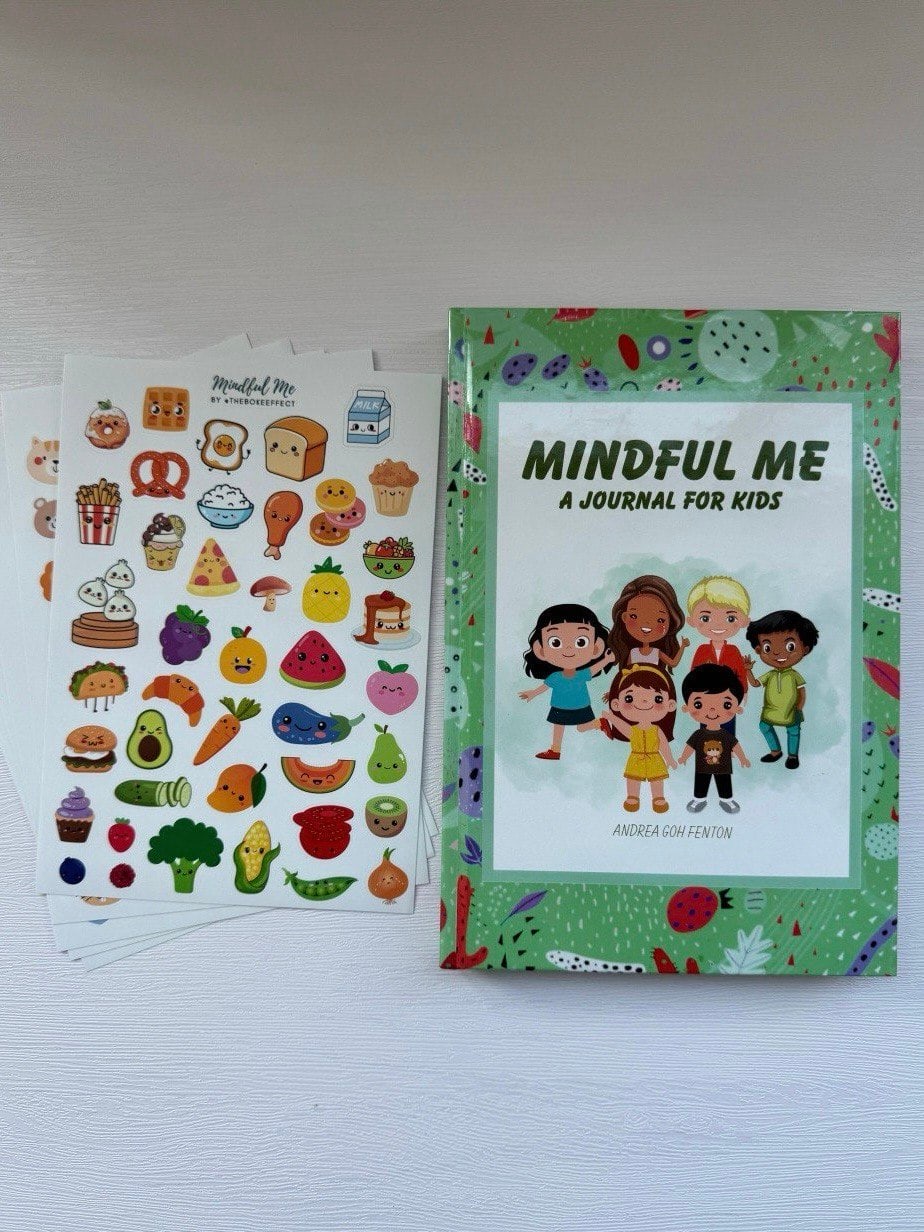
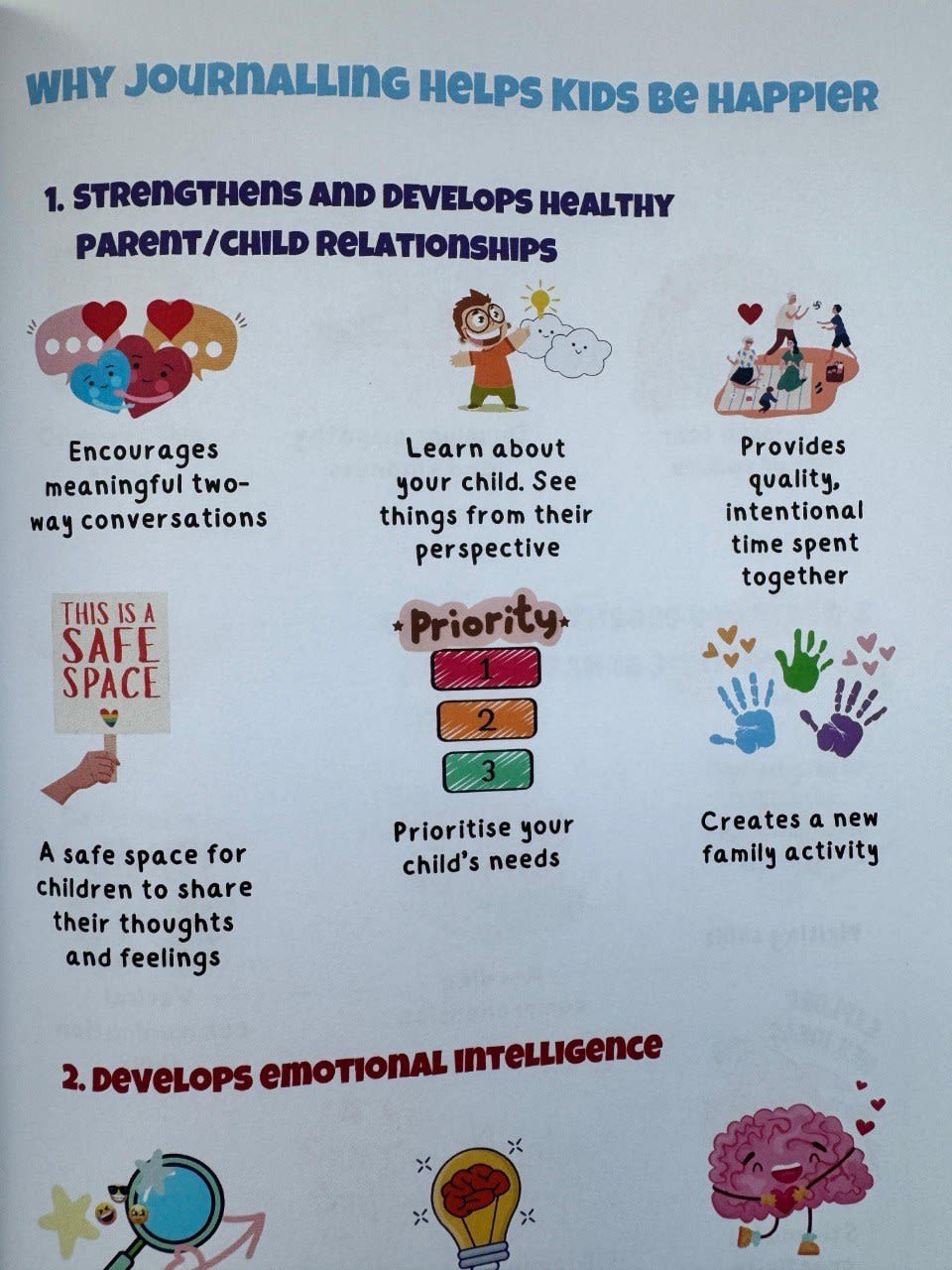
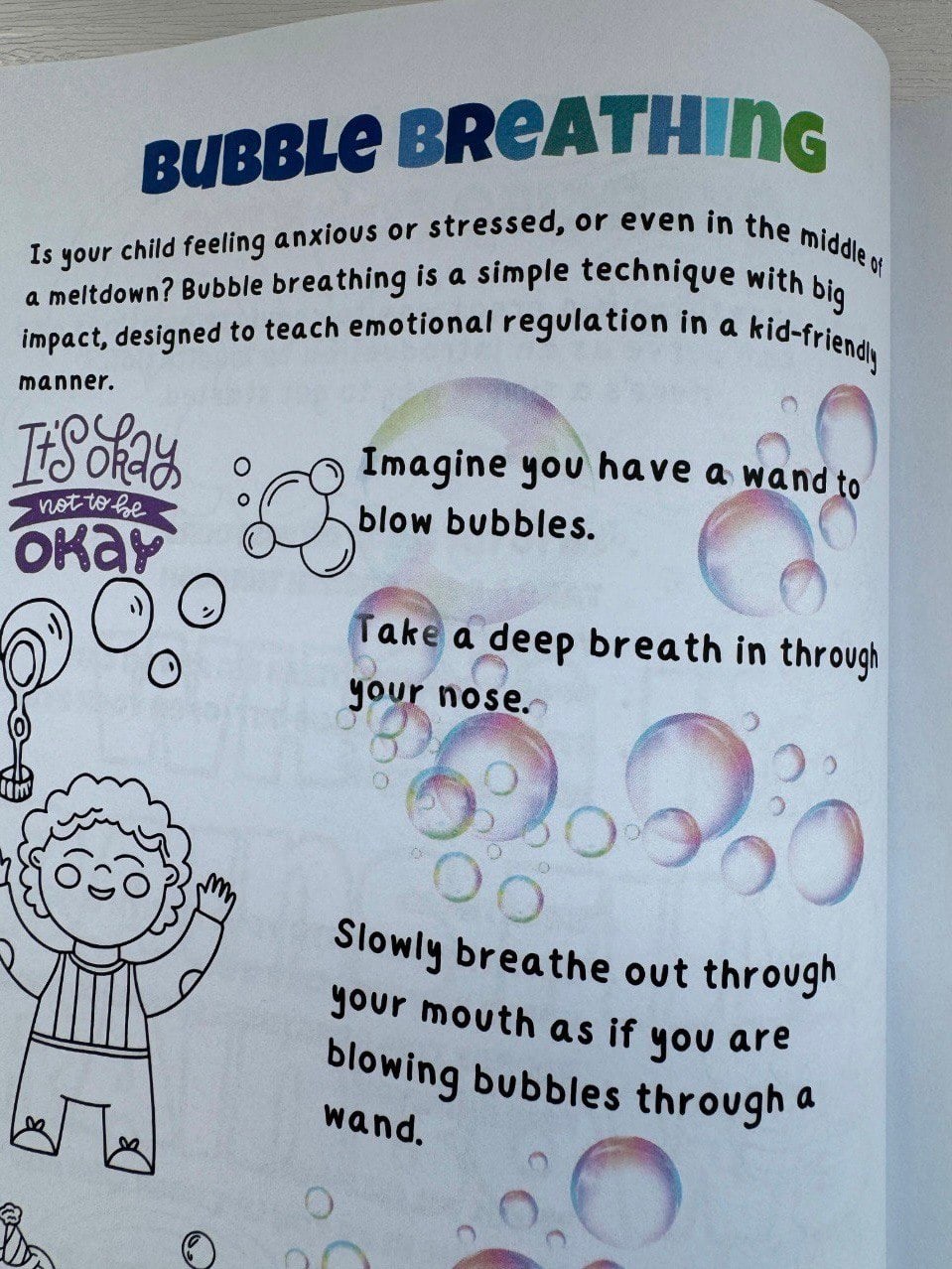
The journal also includes notes for parents, which Fenton says highlight important areas such as outdoor play, learning how to apologise and managing big feelings, with the aim of raising happier kids.
“The positive feedback I’ve received has brought me so much joy, especially when the parents share that the journal has enabled them to understand their introverted or sensitive kids better.”
One parent told Fenton that her introverted nine-year-old loves the journal so much that she sleeps with it by her side, while another parent said that journalling together allowed her to be more in tune with her tween’s emotional needs.
Fenton encourages parents to work on the journal with their children, especially if they’re younger than seven years old, and unable to fully articulate their thoughts.
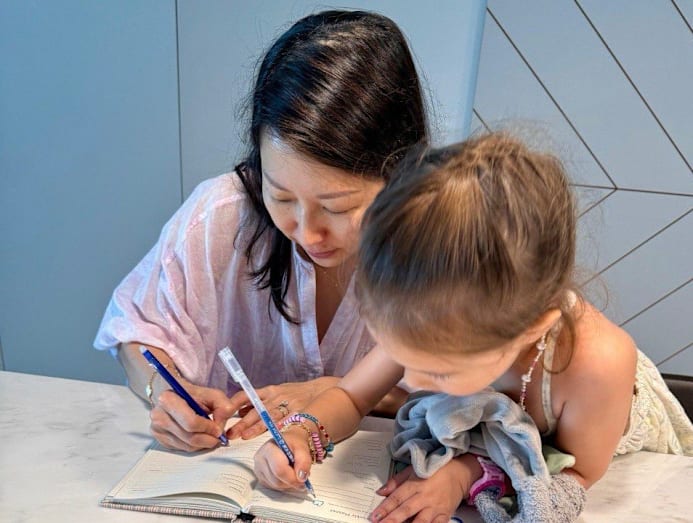
“Parents can spend just five to 10 minutes a day asking their children the questions shared in the journal and writing their thoughts and feelings down on their behalf. This provides an opportunity to bond while also enabling the parent to understand more about their child,” she said.
ENCOURAGING KIDS TO TALK ABOUT THEIR EMOTIONS
The biggest reward for Fenton is seeing her daughter reaching out for “her ‘big feelings book’” – what she calls the Mindful Me journal – to “colour her emotions away” whenever she has a meltdown.
At other times, mother and daughter spend time colouring in the journal together, and Fenton has noticed that Livie has become more open in sharing her feelings.
“Sometimes, she will tell me that she has a lot of big feelings today, and we’ll recognise that it is okay to have these big feelings, whether it’s happiness, excitement, anger, sadness or tiredness,” Fenton said.
These journalling moments also led Fenton to discover times where her actions upset Livie, which she didn’t recognise at the time.
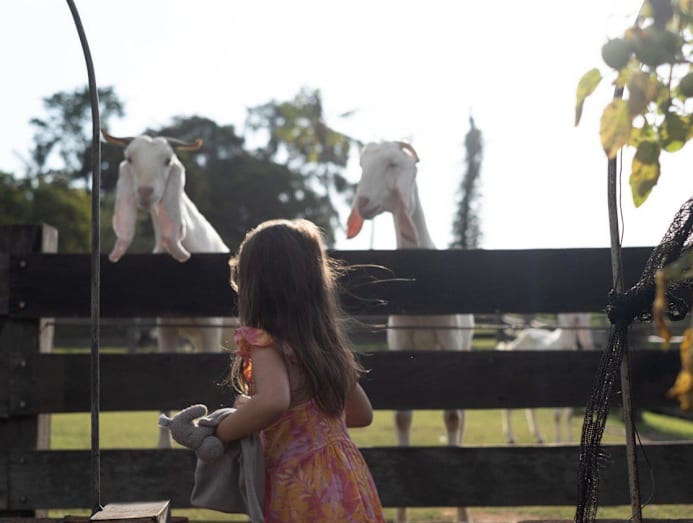
The typical Asian parenting style, with its “children should be seen, not heard” philosophy, doesn’t encourage children to talk about their feelings, said Fenton.
“As children, it was rare for our parents to ask us about our emotions or have honest conversations about what we were feeling.”
But this seems to be changing. “In this new generation, it seems like kids have bigger emotions, potentially due to greater exposure to social media and the digital environment we live in,” said Fenton. “That’s not to say that these issues didn’t exist when we were younger, but the awareness around it was less apparent.”
Raising a child with big emotions has been a learning journey for her, said Fenton. “I’m constantly surprised at how aware she can be of her emotions. I’ve learnt that she needs to be heard whenever she has these big feelings.
“I truly believe that children with big feelings are just like any other child, they just process their emotions differently and often need more space for it,” she added.
Bolstered by the journal’s success, Fenton is now working on an edition for kids above 10, targeted to launch before Christmas this year.
CNA Women is a section on CNA Lifestyle that seeks to inform, empower and inspire the modern woman. If you have women-related news, issues and ideas to share with us, email CNAWomen [at] mediacorp.com.sg (CNAWomen[at]mediacorp[dot]com[dot]sg).






